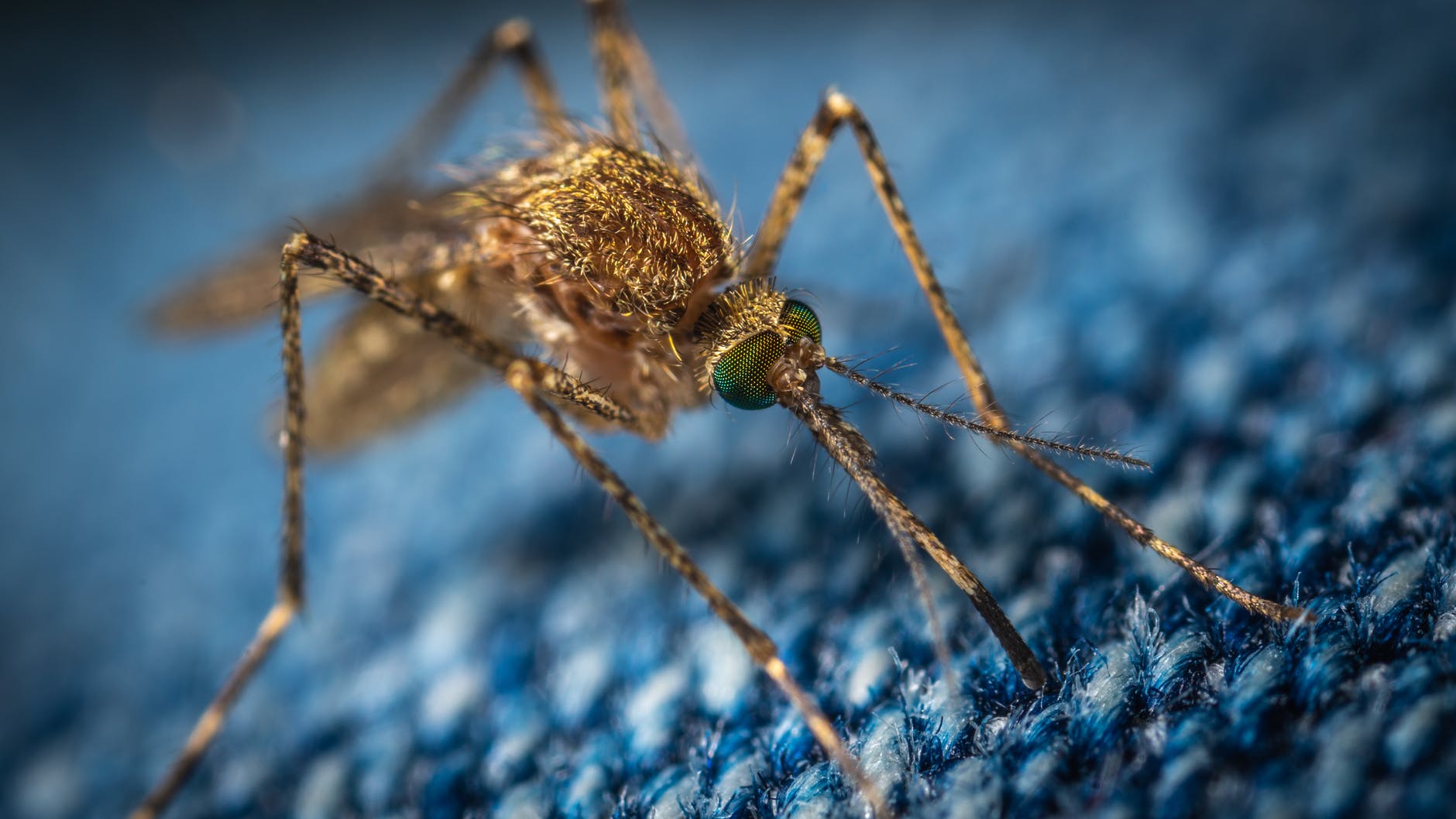¿'Na gi xi deseado uni japi 'nar njohya Pa jar nxoge ximhai ja ya Mosquitos?
Nugu̲ga̲ 'nehe. Wat'i, ar ora ar nu'bya. Ya je̲ya, marcamos ar pa jar nxoge ximhai ja ya Mosquitos Agosto 20. Establecido jar 1897, ár 'mu̲i ge da t'ot'e ya conciencia dige ar conexión ja ya mosquitos ne ar malaria descubierto ya bes ir nge ar investigador británico Sir Ronald Ross jar skwela 'ñithi Tropical Liverpool.
 Ar acrónimo ar pa ndi da WMD, except that it’s already taken by “armas destrucción masiva.” Wat'i, nuna to da 'nar bà útil ar mbeni ya mosquitos. Nuya parásitos chupadores ya ji ya desarma armas ar destrucción masiva da propagan enfermedades. Ya Centros pa ar Control ne ar Prevención Enfermedades ya llaman “the world’s deadliest animal.”
Ar acrónimo ar pa ndi da WMD, except that it’s already taken by “armas destrucción masiva.” Wat'i, nuna to da 'nar bà útil ar mbeni ya mosquitos. Nuya parásitos chupadores ya ji ya desarma armas ar destrucción masiva da propagan enfermedades. Ya Centros pa ar Control ne ar Prevención Enfermedades ya llaman “the world’s deadliest animal.”
Ge 'nar antiguo nts'okute, pe ar ciencia ar 'nanthebe je̲ya XXI to da capaz ya gi fa̲xki ga da superar ár NTS'UI, using tools similar to the ones we’ve developed to grow the best and healthiest crops the world has ever seen.
Ts'o'a'i ya mosquitos pe di aman. I’m a imán mosquito—'nar xe̲ni ar más wa menos 20 Por nthebe ma ar jar nthogi ne ya investigadores ar dätä nguu Florida afirman ya 'befi hontho atractivos. Nu'bu̲ ga muerden, Di hincho ko ronchas.
As much as I’d like to say that we should wipe out the global population of mosquitoes, that isn’t really the goal. Ho̲ntho 'ra pocos ja ya 3,500 especies mosquitos uni japi atacan ja ya jä'i. Ar resto he̲gi ga solos ne proporciona ar nts'i pa ya ts'ints'u̲, Murciélagos, Ranas, ne ma 'ra ya criaturas. They’re even pollinators that help plants reproduce.
Mi ga muerden, Wat'i, Xi ungumfädi enfermedades mortales. Malaria Ho̲ntho mata bà cientos ar miles ya jä'i Kadu ar je̲ya, ja ar ximha̲i nte. Other mosquito-borne diseases are a rogue’s gallery of horrible ailments: Tsoxpa amarilla, Dengue, varios xingu ya encefalitis, ne mäs.
There’s also the Zika virus, ne bà xi extendido ja ya trópicos ne ya permanece ar periferia ya Mi'rangudi. Ya investigadores nä'ä xi relacionado ko defectos nacimiento, da 'ñent'i 'na terrible llamada microcefalia, nä'ä resulta jar le̲le̲ ko cerebros anormalmente t'olo. (Xà thogi goho ya je̲ya, Escribà dige ar NTS'UI ar zika Nuwa Ne Nuwa.)
Ãr njäts'i nu'bu ge ya mosquitos ya ndä ja 'nar enorme yá 'bede ya du̲mu̲i humano.
 Ga̲tho podemos da t'eni simples da controlar ya mosquitos cerca de HMUNTS'UJE hogares ir nge ar eliminación ya criaderos. Ya tácticas incluyen cubrir contenedores abiertos ne vaciar ya recipientes da recogen ar dehe 'ye. Guardar Nunu̲ frisbee revés jar thi ir trasero to marcar ar diferencia.
Ga̲tho podemos da t'eni simples da controlar ya mosquitos cerca de HMUNTS'UJE hogares ir nge ar eliminación ya criaderos. Ya tácticas incluyen cubrir contenedores abiertos ne vaciar ya recipientes da recogen ar dehe 'ye. Guardar Nunu̲ frisbee revés jar thi ir trasero to marcar ar diferencia.
Debemos aprovechar ar poder ar ciencia, 'Nehe.
 Jar granjas, we’ve learned how to defend our crops from pests through traditional crop-protection tools as well as the innovation of GM crop technology. Nu'bya nuna ar éxito, we’re growing more food than ever before and feeding a planet of Kasu̲ 8 're̲t'anthebe millones ya jä'i.
Jar granjas, we’ve learned how to defend our crops from pests through traditional crop-protection tools as well as the innovation of GM crop technology. Nu'bya nuna ar éxito, we’re growing more food than ever before and feeding a planet of Kasu̲ 8 're̲t'anthebe millones ya jä'i.
Now we’re applying this know-how to the problem of mosquito control. Ma nieta, ar hecho, participa jar ár nthoni. Gi nxa̲di ar nt'ot'e da eclosionan ya huevos mosquitos. If we’re going to eradicate some of the world’s worst infectious diseases, Di pe̲ts'u̲he da entender ne desafiar ya mosquitos ja ya etapa yá vidas. 'Me̲hna tsa̲ da incluir ár nte productos quÃmicos da 'bu̲hu̲ seguros pa ya jä'i pe nocivos pa ya mosquitos.
Ar 'ra'yo ciencia ar edición genética to ofrecer soluciones creativas. One of the most intriguing involves the release of GMO male mosquitoes that mate with females but whose offspring don’t survive. 'Nar versión 'be̲t'o nuna ar enfoque zits'i ar derrota ne ar parásito nä'ä mi salvaje industria me̲ti. Ar entomólogo tardÃo Edward F. Knipling, ma nä'ä dá t'o̲t'e honor ga pädi a través de hontho jar paneles ar USDA, inventó técnicas ar esterilización da redujeron drásticamente ar hñäki ya zu'we 'wadá tornillo.
Nxoge ar brote Covid — 19, we’re devoting enormous efforts to defeating an airborne disease that is responsible, jar nuna xi 'yot'i, pa Jädo ar 800,000 muertes globales. (Mosquitos don’t transmit ar coronavirus.) Nuna gehna totalmente apropiado—ne komongu ar anciano, I’m trying to protect myself and others by living a life in near lockdown.
Wat'i, ya mosquitos udi 'nar zu'we Dar pandemia 'befi nzäm'bu. Ar urbanización ne ar cambio climático xi 'nehe xà letal, Nu'bu̲ hingi tomamos t'eni.
The good news is that we’ll conquer the coronavirus. Ya mfädi noticias sugieren ke ya vacunas wa da 'mui ngut'a XtÃ.
.Medida da pasamos ar hñäki Covid — 19, let’s remember the menace of mosquitoes—ne comprometer ar creatividad cientÃfica ne ya recursos materiales mahyoni pa da podamos esperar posibilidad 'nar ximha̲i hinda armas destrucción masiva.
'Yot'e clic nuwa pa ga hoki 'nar donación Red Global Agricultores.


